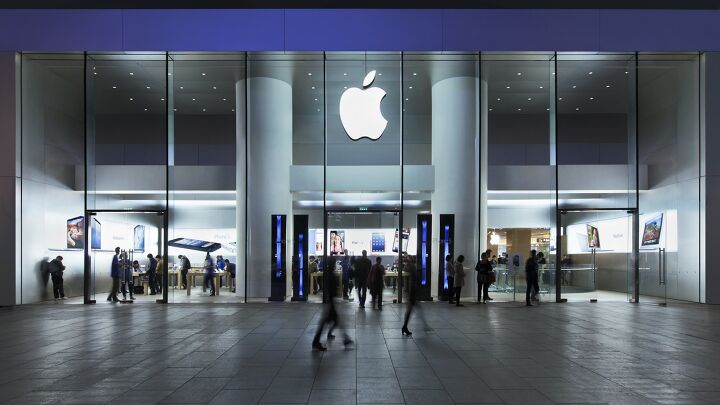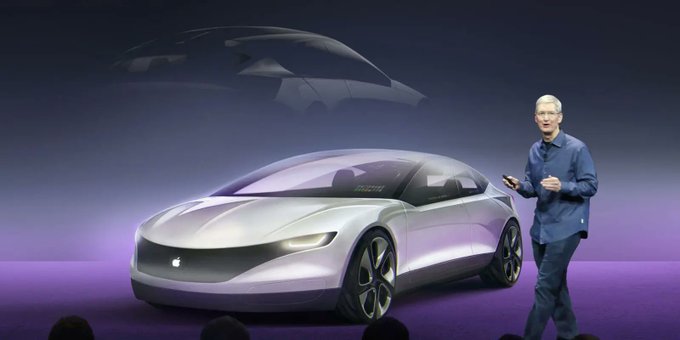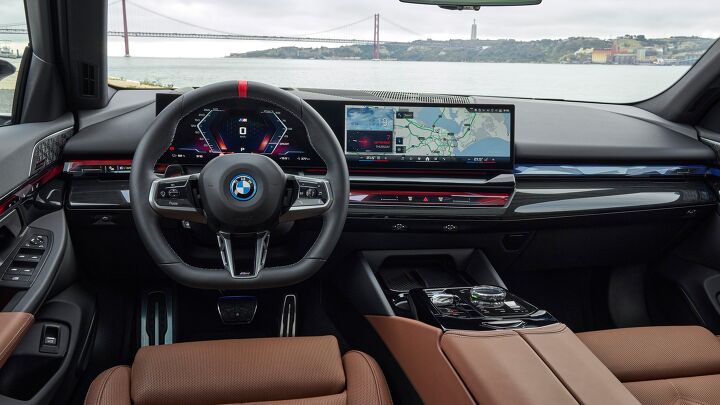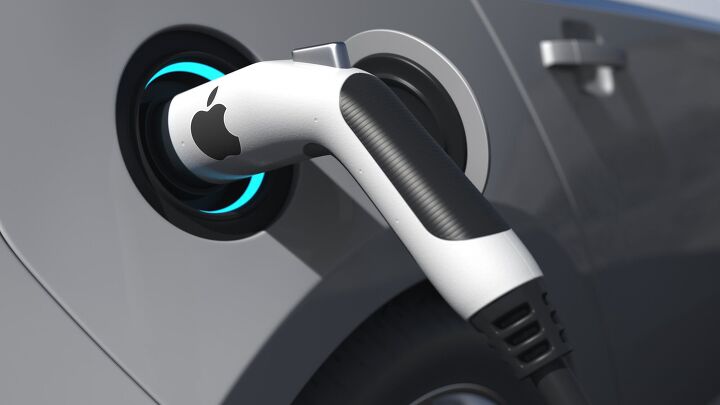#apple
Apple Lays Off Hundreds As Car Project Comes to a Close
Notoriously tight-lipped Apple never officially confirmed its autonomous car project, but the tech giant has been making an awful lot of moves for not having started work on one. Documents filed with California’s Employment and Development Department show that Apple recently laid off 600 employees in the state, coinciding with reports that it nixed its car project to focus on other products.
Abandoned History: The Apple Electric Car Project, Rest in Peace (2014-2024)
After a decade-long project that saw changes in approach, multiple delays, staff changes, planning and replanning, and conflicting reports, Apple’s Titan autonomous electric car project is dead. The company made an internal announcement on February 27th, 2024 which leaked to the press immediately via several Apple employees. The project’s cancellation created our most recent Abandoned History subject matter to date. Let’s start at the beginning, in 2014.
Some IPhone 15 Owners With BMWs Report Damaged Devices From Wireless Charging
Apple has no trouble selling every new iPhone unit it can make, but the tech giant has run into quality and usability issues with fresh tech over the years. There was the “you’re holding it wrong” debacle with the iPhone 4 way back in 2010, and subsequent models have faced questions over durability. Now, iPhone 15 early adopters who own BMW models with wireless phone charging are finding that their cars are frying their new phones.
Next IPhone Update Helps Users Read Dashboard Warning Lights
When Apple's next operating system drops later this year, it’s supposed to include a feature that will help drivers decipher what those little symbols on the dashboard mean. While unlikely to offer the same amount of information as an OBD-II scanner, iOS 17 will come with an improved version of Visual Look Up. The new system offers users help when they can’t figure out what the warning light displaying the little oil can is trying to convey.
Porsche Provides New Features Within Apple CarPlay
While certain other companies (ahem, General Motors, ahem) are busy and inexplicably running away from Apple CarPlay, brands like Porsche are making a concerted effort to further integrate the tool into their vehicles.
QOTD: Will (and Should) Big Tech Build a Car?
Yesterday we posted yet again about whether or not the long-rumored Apple car might or might not happen.
Is the Apple Car Still Coming?
It’s been coming for years and is rumored to turn the automotive world upside down. But the all-electric Apple Car has failed to manifest. We’ve covered the many hardships endured by the code-named Project Titan, which supposedly employed 5,000 people and was rumored to have roped in Volkswagen. But that was in 2018, years after the vehicle’s development cycle had begun and allegedly changed from a pod-like autonomous car built by Magna International to a corporate shuttle based on the VW Transporter.
The story of Apple’s EV has changed so many times over the years that it’s getting hard to believe that we will ever see it. But the latest from the corporate press suggests that it’s still coming.
Opinion: More Automakers Will Dump Apple CarPlay, Android Auto
If you’re someone who follows automotive trends, you’ve undoubtedly noticed just how much effort is going into infotainment screens and features associated with connectivity. This is because auto manufacturers believe leveraging consumer data in a manner similar to tech companies (e.g. Microsoft, Meta, Amazon, Apple, Alphabet) will yield oodles of cash. However, this is also why we’ve started seeing businesses dumping things like Apple CarPlay from their vehicles and some of us have a sneaking suspicion this practice will continue.
There Are No Self-Driving Cars and the Rumored Apple Car Won't Change That
Yet another company has learned the pitfalls of trying to implement full-self driving technology, but this time it’s not an automaker. According to a new report from Automotive News, the long-rumored Apple car appears to have been pushed back to around 2026 because the desired functionality can’t be achieved with today’s technologies.
Apple Wants All the Screens In Your Car
If you’re like the vast majority of Americans, you have a smartphone in your pocket. And while the original purpose of these mobile devices was ostensibly for talking to other people, the truth is most of us use them for anything but talking to people.
Including interfacing with the system of modern cars. Android and Apple have been refining the abilities of Android Auto and CarPlay, respectively, for the last few years. Now, Cupertino wants to take that relationship further – a lot further.
Report: Apple Car Suffers Another Setback
Following several months of news that Apple Inc. was in talks with battery suppliers to set the company up with the necessary hardware and know-how to manufacture electric vehicles, it looks like the iPhone purveyor is back to square one. Reports have emerged claiming the discussions with China’s Contemporary Amperex Technology Co. Limited (CATL) and BYD have stalled.
While the tech giant is said to be keeping a channel open, companies informed Apple over the last two months that they would not be willing to establish teams and U.S. facilities catering exclusively to its needs. While Japan’s Panasonic is still in the mix as a potential partner, it’s looking like the other companies are bowing out. Reasons are said to vary, however, political tensions between the U.S. and China are alleged to be a contributing factor.
Report: Apple Wants IPhone to Have More Control Over Cars
Most of us have synced our phones to a vehicle to play music, unwittingly funneling personal information to the manufacturer in the process. But only an elite few have used their mobile device to digitally summon an automobile out of a garage or remotely tell it to pre-condition interior temperatures to the desired specification. However, that’s likely going to be the future and Apple would very much like to be leading the charge.
The tech giant is reportedly developing a way to better integrate smartphones with cars by accessing systems that are currently unavailable to CarPlay. Apple’s new program, internally known as IronHeart, seeks to collaborate with automakers so that its phones can network with vehicles in new and interesting ways. It’s effectively CarPlay 2.0 and sounds as though it would be giving the company access to just about every item drivers might interface with on a daily basis.
Another Setback for the Apple Car?
Apple’s attempt at building an electric vehicle has always come across as a little halfhearted, though any indication that the company has abandoned the project is swiftly replaced by renewed reports that it’s being spun up again. This week was no different as Ford announced it had scooped up Doug Field — a former Tesla engineer who served as Apple’s vice president for special projects, including Project Titan.
This allegedly spells disaster for the computer company’s automotive efforts. But the business has been down so many dead-end roads already that we’re not willing to make the same assumptions as the rest of the media. While this is likely represents a setback for Apple, it’s difficult to say how big without knowing where it was in terms of overall development. Despite launching its vehicle program in 2014, the company has literally nothing to show for its years of work.
Apple Car Seeking Friendship in South Korea
Apple has been in the headlines all week over changes to its policy that is introducing a image detection system that effectively allows the company to scan the iCloud to see if you have any illegal photos on there. While framed primarily as a way for the company to root out pedophilia, it’s gotten the company in trouble with an increasingly privacy savvy public that’s convinced the next step is generalized surveillance. But while the technology company has been busy trying to improve optics, issuing assurances that its new security protocols won’t overlap with government action and claims that its actions are no worse than what its chief rivals are already doing, the latest on the Apple Car is going unaddressed.
The off-and-on-again vehicle program is reportedly making moves with South Korean suppliers to ensure its got a lock on components. Curious, considering we were under the impression that the automobile was nowhere near completion.
Return of the Apple Car: Almost There or Vaporware?
After years of restarting and then killing its electric vehicle program, Apple has again signaled that it’s once again serious about developing something for your driveway. Ulrich Kranz, former Canoo CEO and brains behind the BMW i-cars, has reportedly been picked up by the company for its automotive team.
Apple has yet to verify the hire and Kranz hasn’t updated his LinkedIn profile. But there have been multiple reports that he’s been been taken aboard specifically for his EV expertise. Unless social networking platforms are becoming passé (fingers crossed), it’s likely that the tech company wanted to wait until it could make an official announcement accompanied by an update on development.
That’s assuming Apple is still doing a car, however.



























Recent Comments